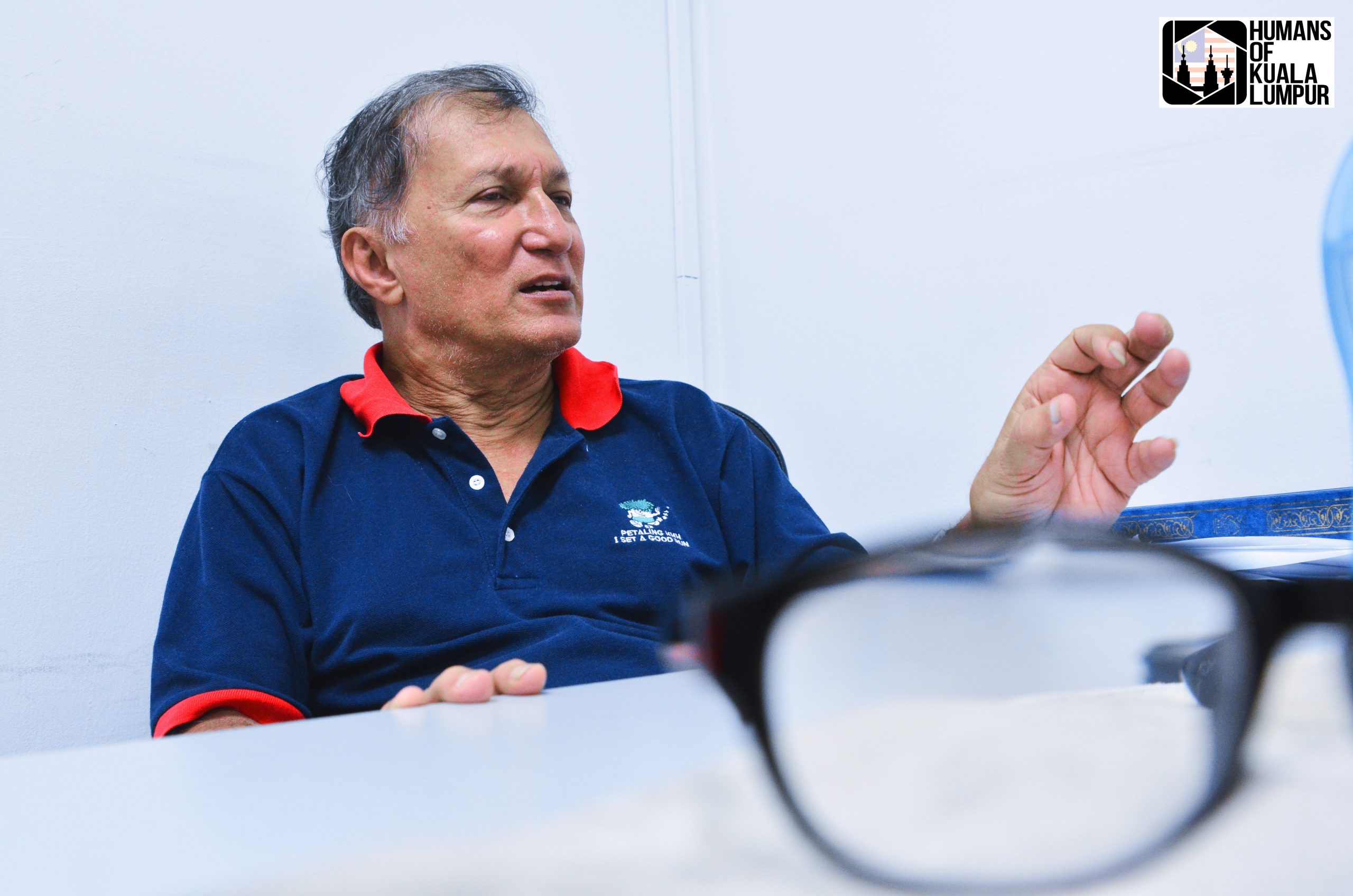“What were you diagnosed with?
I was diagnosed with Anxiety and Major Depressive Disorder during my 40’s. It’s been about a 20-year journey since then.
What made you seek help?
I woke up one day and felt that the world was different. I can’t explain it. My thoughts were racing, my brain was foggy. I managed to take the train to work, but I was having this unknown fear that something was wrong. I went to work, I functioned normally. But through all this, I kept feeling that something was off. I thought I was going mad. And the more you think about it, the more your fear increases. I went to see a doctor, explaining how I was feeling foggy and I had this fear. My company then sent me for a brain scan, and everything was okay. After this was ongoing for some time, the fear that I was going mad had increased. I felt that I just wanted to chuck it in, give away my stuff and all. I think this triggered the doctor to think I was having depression. I was told to go see a psychiatrist. And you know there’s this perspective that when you go to see a psychiatrist, you’re certified mad? The psychiatrist told me, “I see a lot of people with your condition.” It made me feel, “okay, maybe I’m not going mad, my brain seems to be okay.” The psychiatrist recommended me some medication. And usually the first medication you take just makes you feel worse. So I called him up, saying that my brain was racing like a train that I couldn’t stop and my anxiety had gone up. He then recommended some Citalopram and Proxac . You feel that you have no energy after taking it, not even to move your arm. He explained to me that my anxiety was masking my depression, so when my anxiety goes down, my depression comes up. Over time, you learn to become functional. The Proxac helps to stimulate you, but it never fully gets rid of the anxiety.
What changed before and after your diagnosis?
Before all these, I loved to travel. After that, I just couldn’t because of this anticipatory anxiety. Before going on a journey, I would catastrophize a lot: thinking of all the things that could go wrong, what if I missed the plane. My friends would call me up for trips. Before the trip, it was hell. But during trips, I felt good, I never had any anxiety during the trip. My family has also learned how to work with me.. My sister wanted us to go to India, and she hid it from me until the very last second so that I wouldn’t think about it. She didn’t tell me about the trip until the day we were leaving and she asked for my passport. She asked me to just relax and sleep during the flight there. I didn’t have the chance to think about it, and I was able to enjoy the trip. To be honest, I had almost totally given up on travelling. The anticipatory anxiety destroyed my life, it pushes me down a big slope right to the bottom and it’s not worth it. If I could book a flight today and go on a trip, I would do it. Because I know that I would be okay once I’m on the trip. But if I knew we were going a month before the trip, I wouldn’t be able to do it because I would go through hell waiting. It did irritate my girlfriend who wanted to travel but I would say no.
Aside from medication, was there anything else that has helped you?
When I was working, I could afford the cost of psychiatry but I did not go it. After I retired, I found someone (my doctor) who could listen to me, who was empathetic. But I realised that there is no magic to it. You see a psychiatrist and you can tell them your problems, but your problems still remain. I was treatment-resistant. It’s not the drugs that will cure you, it’s about changing your social behavior. Before all this, I always thought that I didn’t need people, I could do it all on my own. After anxiety, you’ll come to realise that you really really need people. So I try to socialise more, go out with friends. I enjoy going into the woods, I never really had any fears about it. Going into the woods, you may feel tired at the end of the day but you also feel good. I think that has helped me all these years.
20 years down the line since your diagnosis, what else has changed?
You start to empathise more with people. Initially I never really had empathy for people. My girlfriend’s brother, brother-in-law is schizophrenic. Initially I thought I could never understand him. But after all this, I kind of understand now. Now I tend to notice more about the people around me.
What is the biggest misconception the public has about mental health?
“Think positive” is one of the most bullshit statements I’ve ever heard in my life. People tell you to “get it together”, but you can’t just do that. I’m thankful to have friends who are very kind. You learn to separate your friends after that: those who you can only talk nonsense and chit-chat to, and those who you can really open up to and who are not afraid.
Another funny misconception I see, are people thinking mental illness is an infectious disease. There are so many people who think that if you talk to a sad person, you will become sad. And as a result, if you mention something sad, they would change the topic and not go into it.
Struggling with your mental health also makes you lose a lot of motivation. Back then, if I have to repair a chair, I would really find fun in doing it. Now it’s just going through the motions. I wouldn’t dream of how I could build more things around my house.. That ambition went away when I got depressed. Maybe the part that gave you the satisfaction died off? Every morning you wake up and think, “I can’t wait for night to come, this day would be over.” I should look forward that I have things to do in my day, but I don’t really.
How did you get involved with MIASA?
There was a lady in Desa complex who let me use a shop-lot for free for 6 months. Although I had a lack of drive for doing things, I wanted to start a game group. As my friends played mahjong, I bought a set for them to play (no money was involved in this). I set it up for half a year but no one came. The location was out of the way and it was hard to get the whole group together. But when this mahjong group was going down, a friend of mine said that someone was willing to let me use their cafe in Mont Kiara for free if I wanted to keep going with this mahjong group. She was willing to help me, she was a housewife and she has been travelling with her husband. To this day, the mahjong group is still going. I started the WhatsApp group, made the icon for it, I would go for most games, take pictures and post them. It’s been about 2-3 years, and they’re expanding into other games as well. I actually started a club, it’s a success story!
If you wake up in the morning and you do not see the point of living, you will get a lot of suicidal thoughts. I’m a cowardly person, I’m not going to slit my wrist or jump. I also know the consequences, the whole family will suffer. To survive, you learn to bear with it and find ways to help yourself. I started looking for support groups, and that is where I found MIASA.
At one point I was teaching Art to some Myanmar kids. I never did Art in my whole life. But after I retired, I tried drawing. From there, I realised I could draw a little bit. Then my church started an initiative for Myanmar kids and that was when I started helping. But kids are very difficult to control. When I wanted to start art classes in MIASA, it took a long time to get started as there was uncertainty if it would work. But when it finally got started, our founder too started getting excited about it.
Do you think suicidal thoughts should be discussed publicly/more often?
Yes, because such thoughts becomes a part of depression after a long time. Suicidal thoughts were not in my mind during the first 10-15 years. But after I retired, going through all the aches and pains of life, my hip broke after I got hit when riding my bike. There was a time when my brother was really worried about me. 2-3 Christmases ago, I didn’t want to join them in celebrating. I told him about how the world has gone a bit dark for me.
What do you hope for from your family and friends? What do you expect?
I don’t put many expectations on them. Family-wise, they have learned to understand it. And sometimes, people can only go so far to help you. Even when I’m sitting in a group playing mahjong, there are times when my anxiety level shoots up until I’m unable to concentrate at all. You can be in a social circle but still be miserable. But overall, you are happy being there. I hope people can be more accepting: “okay you have this, and it’s not going to be an issue.” You’re going through this journey with your mental health, you will learn something from all this.”
Photostory by Divaa
Edited by Win Li
Photo by Aiman



